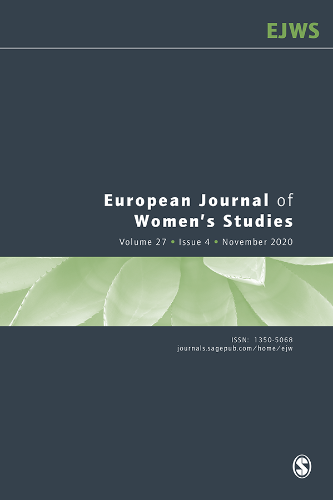Abstract
This article aims to develop new conceptions of the psychosocial dynamics that drive the re-romanticization of domestic femininity in current financialized capitalism. Feminist scholars have described this heightened cultivation of mothering as a reparative move in response to irreconcilable tensions between cultural ideals of the ‘balancing mother’ and ‘lean-in femininity’. This article adds a materialist-psychosocial lens to these conceptions, to enhance understanding of what drives this craving for domestic femininity. Drawing on a free-association narrative interview study with couples in the financial elite in the comparatively gender-egalitarian Norwegian context, I describe a specific emotional mechanism that resists democratization of gender in this specific group. The interviews reveal a felt need to cultivate ‘the human side of things’ at safe distance from the competitiveness of ‘hard-core finance’. The Nordic earner–carer model with its entwinement of care and professional pursuits, cultivated by the more self-fulfilment-oriented parts of the professional middle-class appears not only unwanted but threatening. In my analysis, I retrieve and develop a psychoanalytically inspired historical-materialist feminism, one that perceives of the gendered division of work as a split in modes of focusing human energy. I suggest that the resurgent cultivation of domestic femininity is nurtured by a self-energizing antagonism between competitive and relational practices. I further argue that the cultivation of domestic femininity in these financial couples points to a potential antagonism between the democratization of love and the specific anxiety-driven competitiveness to which this financial-elite group may be particularly susceptible.
Read the full article here.
